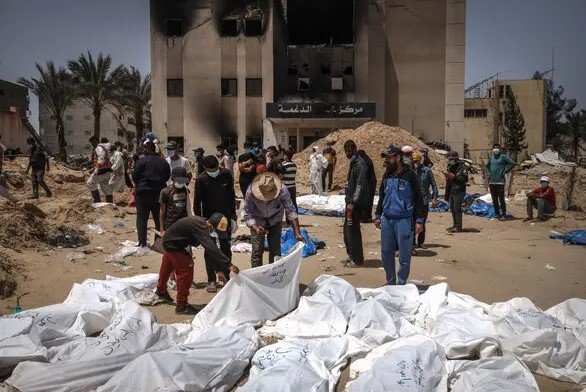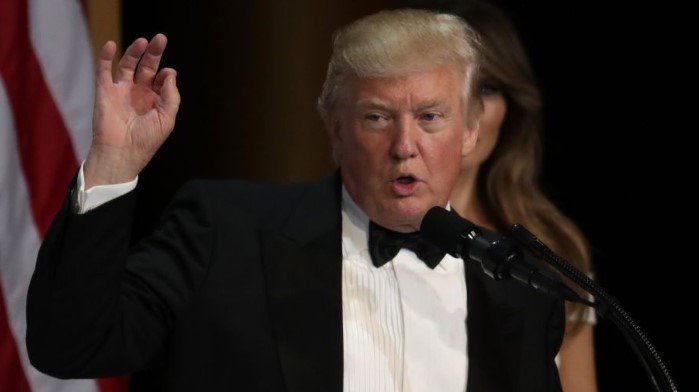Netherlands, The Hague – April 28, 2025 –
The International Court of Justice (ICJ) convened today in response to the ongoing genocide and other such world crimes associated with Israel’s relentless military activities in Gaza, which, according to South African lawyers, has formed an “open mass grave”.
In yet another explosive hearing in the Peace Palace in The Hague, South Africa called for the strongest UN court to recalculate the southeastern boundaries of Israel and instantly suspend any further military actions around Gaza Strip and warned about Israel’s control of operations where it has reached a humanitarian crisis level, “catastrophic and irreversible” issues.
Confronting a Court Law
South Africa’s ambassador to the Netherlands, Vusimuzi Madonsela, burst into tears when explaining the humanitarian crisis, vividly painting a Mississippi-like life scenario happening during the Israeli siege of Gaza.
“Entire neighborhoods have been obliterated. Hospitals, schools, and places of worship have been shelled,” said Madonsela. “People are starving. Families are trapped in the rubble. Gaza has become not only a humanitarian crisis, but a mass grave.”
South Africa’s legal team asserted that the Israeli Defense Force’s actions constitute genocide, arguing that the drastic civilian death toll, the systematic undermining of infrastructure critical for survival, and the complete blockade of humanitarian corridors that sustain Gaza’s population are genocidal.
Israel’s Defense
They have registered in court that the IDF targets the dismantling of Hamas operations, the militant faction governing Gaza, which attacked Israeli civilians and soldiers. In earlier submissions to the court, Israeli representatives expressed concern about wide civilian casualties, arguing that they take steps to reduce them and claim that Hamas exploits civilians for combat.
Israeli legal advisor Gilad Noam, who is set to respond formally later this week, has characterized South Africa’s case as “utterly delusional” and “part of a more extensive political strategy which aims to dismantle Israel’s right to sovereignty and self-defense.”
It is an unfortunate reality that Gaza’s suffering, as tragic as it is, is a result of Hamas’ decision to perpetuate its activities within civilian population centers.
Worsening Humanitarian Situation
While the battle over legal reasoning plays out in The Hague, Gaza’s situation continues to decline. According to the United Nations, over 33,000 Palestinians, largely comprising women and children, have lost their lives in the escalation of conflict in Gaza after Israel’s retaliatory offensive in late 2024, following a brutal attack by Hamas on southern Israel.
There has been an incessant and dire need to address the food scarcity problem for Gaza’s populous, particularly in the northern regions of the strip. UN Relief and Works Agency (UNRWA) has issued alerts regarding the possible famine in the northern Gaza region owing to the scarcity of food, clean water, and medical supplies, which are in dire need. Almost 85% of Gaza’s 2.3 million residents have been displaced at least once and are taking refuge in modular camps, severely overcrowded, or residing in the ruins of formerly inhabited neighborhoods.
Philippe Lazzarini, the UNRWA Commissioner-General, said the humanitarian condition is “unparalleled in modern history.”
“We are witnessing the systematic annihilation of an entire people,” Lazzarini stated as he spoke last week. “This is not collateral damage. This is intentional.”

A South African Perpetual Lawsuit
This is not the first approach South Africa has taken concerning Israel’s actions toward Gaza in the International Court of Justice (ICJ). In January 2025, the court passed a preliminary decree directing Israel to undertake all steps available to prevent acts of genocide and to facilitate the provision of humanitarian assistance to Gaza, yet it refrained from mandating a halt to hostilities.
Today’s hearing, however, forms part of a new initiative by Pretoria aimed at securing an urgent restraining order compelling Israel to completely stop all military activities.
Citing new evidence, South Africa’s legal representatives included satellite pictures depicting extensive destruction of civilian infrastructure, eyewitness testimonies of massacre sites, alongside evidence of the complete and systemic collapse of Gaza’s health services.
“We are pleading with the court to respect the most fundamental norms of humanity,” said advocate Adila Hassim. “The Palestinian people in Gaza are threatened with extermination.”
Global Responses
Responses to the proceedings of the court have been polarized along geopolitical lines.
Several countries, including Malaysia, Turkey, and Ireland, have come out in support of South Africa’s endeavors, while the United States and Germany continue to side with Israel’s right to counterattack Hamas.
Speaking on behalf of the White House, John Kirby gave reiterations of America’s stance, saying today,
“It is Israel’s right and responsibility to defend its citizens against terror. We call on them to respect their own laws and international law, but we do not see the actions of Israel as genocide.”
On the other side, pro-Palestinian demonstrators protested outside the ICJ, shouting slogans while carrying the Palestinian flag. Their placards that read “Stop the Gaza Genocide” and “Justice for Palestine” were quite telling.
What Happens Next?
The court is expected to take several weeks to discuss the matter before reaching a verdict based on South Africa’s most recent request. The court’s decisions, while binding, lack a means of enforcement; thus, adherence is reduced to the level of political goodwill.
Still, a judgment against Israel formally could signal changes for symbolic and diplomatic actions, possibly issuing sanctions, travel bans for Israeli officials, and cause further isolation in global circles.
Also, some scholars pointed out that the ICJ’s outcome can have an impact on the International Criminal Court’s (ICC) active probing of Israeli forces and Palestinian militants’ war crimes within the ongoing conflict.
Table of Contents
In the Context of Greater Importance
Gaza holds one of the flashpoints that can ignite the Middle East into conflict. Attempts to create a ceasefire and sustain it have proven unsuccessful, with Egypt, Qatar, and the UN trying to intervene and facilitate.
Israel states it will not suspend operations until Hamas’s military capabilities are removed, while Hamas will not engage in talks till Israel stops the offense and blockade.
Each day, the figure of casualties keeps increasing while the resources available to aid the victims keep decreasing.
While people witness the legal circus take place in the ICJ, countless Palestinians continue to drink a slight amount of water from the well of hope that international intervention could fulfill objectives where diplomacy has failed.



